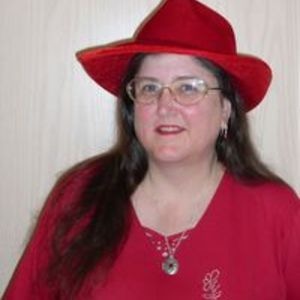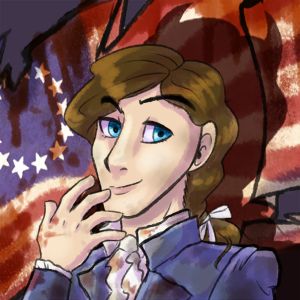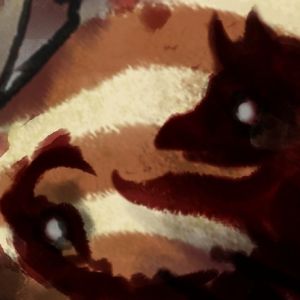October 8, 1766
I fail to understand the changes in Mother’s behavior of late. She seems so sad and troubled. When I ask her why, she talks about something else. I haven’t heard her tell anyone else what’s wrong, either. Is she concerned about the acts Britain has been imposing on our colonies and all the unrest around us? Why would she keep silent about that? Everyone talks about it, and more. Something else must be bothering her. She asks me questions that haunt me. “Do you ever go to the slave market, Luke?”
“No, Mother, why would I? We have enough help here. I don’t need to shop for more. I’m only eleven. I don’t buy slaves!”
“I—thought perhaps you went to stare.”
“Stare?” I forced a laugh. “Don’t be silly!”
Another time: “Do you ask yourself whether you are a Jacob or an Esau?”
“Well—yes.”
“Why?” she asked.
I didn’t want to explain why. It’s probably obvious that those biblical brothers still hold a fascination for me, but how did she know I’ve asked myself that question? “Mother… Why does it matter?”
She looked to the floor and sighed.
Remembering the times she has known things she had no natural way of knowing, the times she says, “God whispered in my ear,” I wondered if God had cooked up a new way of betraying me.
Mother has also grown shorter with me. I thought at first it had to do with the child she carries, which is big within her by now. But I haven’t noticed her being less patient with her other children. Does she love me less now? Why would she?
The only thing I can imagine is that she has decided for some unknown reason that her new baby will be special in a way I am not. The only time Mother’s eyes light up now are when she speaks of her coming child. She said today that she thinks it will be a boy and that, after three girls in a row, another son will be a welcome change. She fusses over the nursery like she never did before any of my younger brothers and sisters were born. This will be her thirteenth, including the three lost to illness. I find that I still miss Josiah, even though he was one of the three boys in the way of my getting the inheritance; he was almost kind to me, compared to the others. I imagined for a while that if Asher and Jonathan didn’t inherit, Josiah might even share it with me. But no; our Creator has not seen fit to make my dream come true that way and has taken away the comfort I had in Josiah. I wait for Father to recognize that if Asher takes over, it could destroy the family. But if Asher doesn’t do something foolish enough to prove that… perhaps the matter needs a little help from someone else.
At least Margaret is still alive. She treats me a lot better than she used to. She is fond of Mother and follows in her footsteps in many ways. What must it be like to have to depend upon finding a husband to determine your life’s direction, rather than a trade or profession? Some women do have trades, but things are harder for them because of the ways they are treated. I’m glad to be male—and anxious to be a doctor. I have been reading so many books in preparation!
What is that cracking sound outside the window?
I’ve looked out. A friend has thrown a rock up here to get my attention. I’m going to slip outside to meet him. I wonder what we’ll do tonight? Throw dice? Play poker? I hope he has more information about the slave trade deal he mentioned last week. I may not get much sleep tonight, but it will be worth it. Goodbye, journal!
October 10, 1766
The slave trade deal promises to be lucrative. Good I still have enough of the money I borrowed from Father so I can make the investment! I can’t believe I lost the poker game the other night. I usually win when I cheat, and I’m getting better at that, also at bluffing. I find satisfaction in fooling people. And picking pockets, too. It’s an art that takes a steady hand and a clever mind—a good challenge. I’ve never been caught, and I mustn’t be! I hope to replace what I lost in that game.
I still wonder about Mother, though. Her face seems paler than usual. Today I heard her cooing into the empty crib. When I approached, she turned to look, and tears glistened on her cheeks. She sighed as she looked at me, and walked off without a word.
October 23, 1766
I have been betrayed again. This time, by the one person I thought truly loved me.
I came home last night from celebrating the success of getting ahold of those slaves and sending them down South. I was wondering how to cover the scent of rum on my breath by morning, when I smelled burning animal fat, the telltale reek of a tallow candle. I followed the smell to the kitchen, where Mother sat near the fire, reading a book. I thought for a moment it was one of those new novels, and I thought she must have found it extremely exciting, to be up so late and using so much tallow. But when she heard me enter, her eyes went wide in the dim light and she dropped the book on the floor.
It was my journal. Not the fresh one I’m currently writing in and hiding in a place in the woods, but the most recent one before this, which I hid in a box in an old trunk. The one in which I described my plan to make certain Asher is blamed for the gambling losses and for selling those slaves to the plantations.
The evidence already points to Asher. There was no way I could be suspected. Until now.
There was no way she wouldn’t know it was my journal; my mother is quite familiar with my handwriting.
I rushed up to grab my journal, but she snatched it up and held it tightly.
Impulsively, I grabbed her arm, about to force it out of her hand. But she shook her head and said, “If you take it back, I’ll call for your father and show it to him.”
“Please… Don’t tell him anything!” I begged. Realizing I hadn’t noticed where it had been open, I asked, “How much of it have you read?”
She held her lips taut and remained silent.
“Mother? Can’t you tell me?”
“Enough,” she said, “to know you are not the boy I thought you were.”
I thought a frozen heart could never be broken. But I swear the ice in mine is cracking like a frozen lake in a quick thaw—preparing to shatter into splinters.











Comments (0)
See all